Pupil Personnel Services (PPS) is now Student Support Services
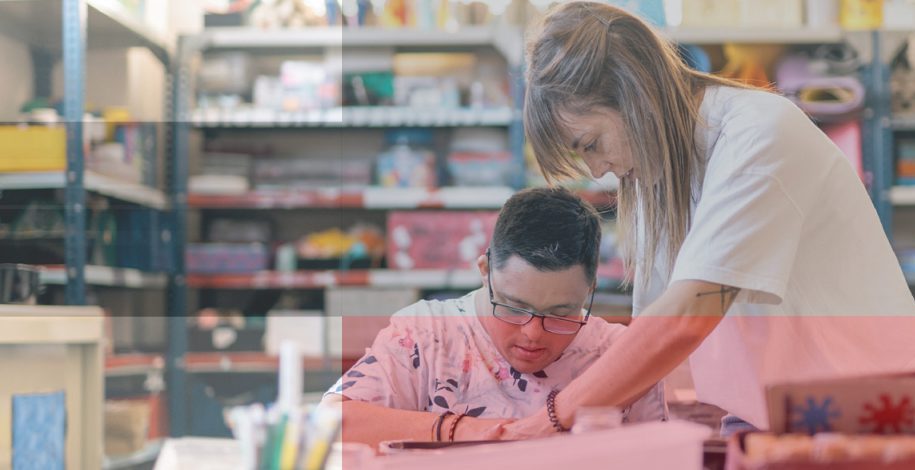
As districts consider the organizational structures of PPS and Special Education as well as building out the system of support for students, there is a growing number of districts that describe this department as Student Support Services or in some cases Student Services. We find this title better reflects the current and very broad services that are provided to support our students.
Student Support Services helps to fulfill the Niskayuna Vision by providing equitable access to services and programs that support the academic, behavioral, social, emotional, and health needs of all students in promoting an equitable community of lifelong learners. The programs and services that are provided in our department’s continuum of services range from prevention to intervention, and mandated services.
- Student Support Services Organizational Chart
- Related Services (In-District)
Physical Therapy
Occupational Therapy
IEP Counseling
Speech and Language Therapy
Skilled Nursing Services - Related Services (Contractual Service Providers)
Assistive Technology Specialist
Orientation and Mobility
Teacher of the Blind and Visually Impaired
Teacher of the Deaf and Hard of Hearing - Consultant Teacher
Indirect Consultant Teacher Services
Direct Consultant Teacher Services - Resource Rooms
- Academic Skills Development Program
- Life Skills Program
- Communications Program
- Intensive Management Needs (IMN) Program
Leadership
Tim Fowler, Assistant Superintendent of Student Support Services
Mr. Fowler oversees the Student Support Services Department, which includes academic development, food and nutrition, health services, school safety, special education and transportation.
Brianna Meikle, Assistant Director of Student Support Services
Ms. Meikle will have oversight of CPSE, Van Antwerp MS student support services and CSE, Out of District Programming as well as supervision of Speech, OT, and PT.
Julie Bouyea, Director of Student Support Services- K-6
Ms. Bouyea will have oversight of the five elementary school student support services and CSE as well as support the system implementation of Therapeutic Crisis Intervention for Schools (TCIS) training and practices.
Andrea Marques-Clarke, Director of Student Support Services
Ms. Marques-Clarke will have oversight of Iroquois MS and Niskayuna HS student support services and CSE, as well as supervision of school psychologists and social workers.
Related Services
Related services include developmental, corrective and other supportive services recommended to assist students with disabilities. Common related services include but are not limited to: speech and language therapy, occupational therapy, physical therapy, teacher of the visually impaired, teacher of the deaf and hard of hearing, skilled nursing, orientation and mobility and or psychological counseling services. Related services may be provided as the only special education service or in conjunction with other special education programs and services.
Related Services (In-District)
Physical Therapy (PT)
PT service delivery is dictated by the current and ongoing needs of the student and should be flexible, using various options across the continuum of service delivery including, but not limited to:
- Consultation: classroom and home suggestions
- Accommodations/Modifications/Adaptations: Environmental changes including positioning devices and equipment
- Staff training: assistance with use of equipment, transfer training, school environment accessibility.
- Integration: Instructional activities such as classroom sensory or motor activities developed and implemented by the PT and team member
- Direct: Individual or small group therapy
PT Performance Areas:
- Participation in classroom
Ability to sit
Transfer
Balance
Transition throughout the classroom
- Functional mobility
Walking quality/speed/awareness for various distances and surfaces
Wheelchair mobility
Ability to carry supplies
Transition around the school
Overall safety
Stair function/elevator use
Endurance
Opening/closing doors
- Life Skills
Physical performance dressing
Organizing cubby
Walking in line
Organizing supplies
Meal time and transportation
- Playground/ Physical Education Skills
Running, jumping, climbing
Balance and coordination skills
Body awareness
Motor planning
Ball skills
Following commands
Safety
- Developmental and Gross Motor Skills
Muscle strength
Muscle tone
Range of motion
Posture
Developmental milestones
- Adaptive equipment and modifications
PT can assist with providing and educating student and staff on proper use of equipment required to accommodate needs
Occupational Therapy (OT)
OT service delivery is dictated by the current and ongoing needs of the student and should be flexible, using various options across the continuum of service delivery including, but not limited to:
- Consultation: classroom and home suggestions
- Accommodations/Modifications/Adaptations: Environmental changes including positioning devices and equipment
- Staff training: assistance with use of equipment, transfer training, school environment accessibility.
- Integration: Instructional activities such as classroom sensory or fine motor activities developed and implemented by the OT and team member
- Direct: Individual or small group therapy
OT Performance Areas
- Fine Motor Skills: Skills necessary to participate in hand-based activities in the classroom setting.
Hand strength and endurance
Consistency in hand dominance
Grasp pattern on classroom tools
Cutting safety and accuracy
Bilateral coordination skills
In-hand manipulation skills
Midline crossing skills
Tool grasp
- Handwriting Development: Skills needed to participate in writing expressions in the classroom.
Handwriting Legibility Skills ( Letter formation skills, Letter Sizing skills, Letter placement, Letter spacing, Word spacing)
Handwriting Speed
Handwriting Endurance
Printing related to math (number formation, lining up numbers, drawing graphs)
Keyboarding Speed and accuracy
Alternate writing speech to text software
- Activities of Daily Living/Independent Activities of Daily Living: Skills needed to participate in independence in self-care skills in the classroom setting.
Toileting
Dressing (fasteners, shoe typing)
Eating (use of utensils)
Managing School Supplies (carrying, managing, opening)
Community living skills at the middle and high school level
Sensory Processing: Foundational skills needed to manage environmental stimuli (visual, auditory, tactile, proprioceptive, balance) appropriately in their primary classroom environment.
Sensory seeking
Sensory defensiveness
Sensory regulation
Sensory avoidance
Behaviors associated with sensory processing
- Vision/Visual Processing: Skills needed to participate in visual tasks and visual understanding in the classroom setting as they impact academics
Visual Perceptual Skills: Figure ground, Form constancy, Spatial Orientation, Visual Memory, Visual sequencing, Visual Closure, Visual Discrimination
Visual Ocular-Motor Skills: Visual Tracking, Visual Scanning
- Executive Functioning
Organization, planning, ideation
Task initiation, working memory, impulse control, foresight, hindsight, prioritization, social thinking
Time management, following a schedule
IEP Counseling
Services may be provided to an individual student or a group of students using a variety of therapeutic techniques to assist the student in overcoming behavioral and emotional difficulties.
Students who are eligible for special education services may receive school counseling support through an IEP if the services are either directly, or at least partly related to the student’s diagnosed impairment and directly impact the student’s school performance.
Learner Characteristics
- The student’s behavior is chronic; that is, the student’s teachers have documented his/her social, emotional, behavioral or motivational concerns over a period of time and such behaviors interfere with the student’s success despite attempts to modify his/her behavior. Previous alternative interventions to meet these needs have been tried unsuccessfully (under MTSS).
- Clinically significant scores on relevant behavior rating scales (BASC-3, Conners 3, etc.)
- Students who have specific social skill deficits requiring instruction to develop prosocial skills necessary for successful participation in the learning environment.
- Students who have difficulty developing or maintaining relationships with peers and/or school personnel
- Students who have anxiety, depression, or other mental health concerns who are experiencing significant school difficulties
- Student is willing and able to engage in the intervention
Speech and Language Therapy
Developmental, corrective, and/or supportive service that assists a student with a disability that is adversely impacting educational performance. This may include speech sound development, understanding and use of spoken language, fluency, hearing, voice, pragmatic language skills, augmentative or assistive communication.
Learner Characteristics
- Significant deficit in the areas of expressive, receptive, and pragmatic language
- History of development delays in acquisition of speech
- Student may be on autism spectrum
Skilled Nursing Services
Services provided to students (when appropriate) to address the administration and/or monitoring of medication needed by a student during school hours, or for the purpose of providing nursing treatment, or procedures triggered by medical conditions such as allergic reactions. Skilled nursing services may also consist of consultation to staff regarding the effects of a student’s specific medication.
Related Services (Contractual Service Providers)
Assistive Technology Specialist
Service provides consultation with staff and families on the assistive technology needs of students. Assistive technology specialists also provide training and support to the students and teachers.
Assistive technology consists of devices and/or services that help students achieve greater independence and enhance their ability to access the curriculum. Examples of assistive technology include communication devices, modified or alternate keyboards and/or specialized software that allow students with disabilities to use a computer.
Orientation and Mobility
Service provided to teach students with visual impairments to travel safely, confidently and independently in their environment.
Teacher of the Blind and Visually Impaired
Service provided to students with significant visual impairment and/or vision loss to assist in acquiring compensatory strategies, use of technology and Braille and Nemeth Code instruction. Through both direct instruction and consultation with interdisciplinary team members, the TVI effectively assists students in acquiring academic skills and increasing independence within the academic context.
Teacher of the Deaf and Hard of Hearing
Service provided to students who require educational services due to a hearing loss. The Deaf/Hard of Hearing teacher addresses the unique needs of the student with hearing loss and provides guidance to the student’s family and school personnel.
Supports for Students
Students may receive one or more related services. These services may be provided in individual and/or group sessions based upon the student’s individual needs. Student progress will be assessed at regular intervals using various methods of data collection (observation of targeted skill, checklist, rating scales, etc.)
Supports for Staff
The related service provider(s) consults with the student’s teacher(s) regarding instructional modifications, management needs, program (classroom) and/or testing accommodations relating to the student’s disability and its impact on learning.
Supports for Parents
The related service provider(s) informs parents/guardians of the structure, routine, and schedule of the related service at the start of the school year. The provider offers parents suggestions regarding home activities for supporting attainment of Individualized Education Program (IEP) goals and/or objectives. In addition, the provider generates a report of the student’s progress towards IEP goals and/or objectives and communicates this to parent(s)/guardian(s).
Consultant Teacher
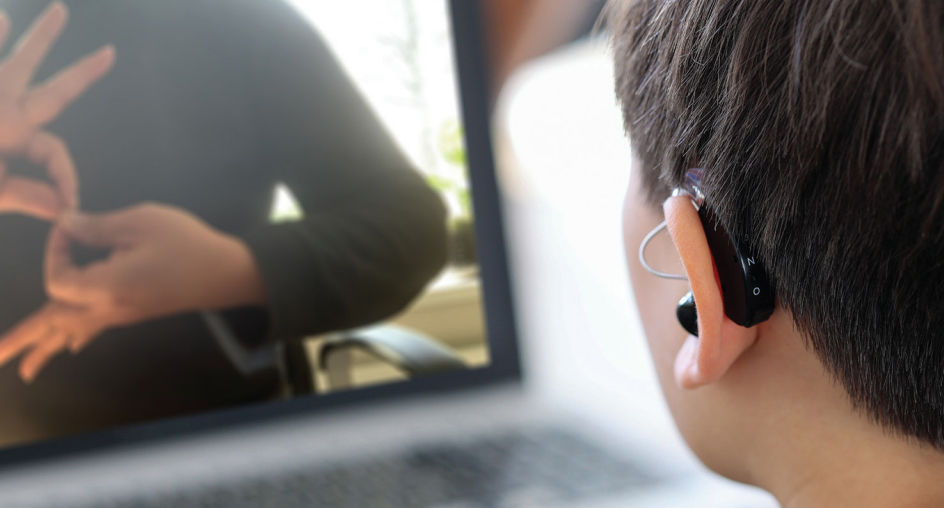
Consultant teacher services is a direct and/or indirect service provided in the General Education classroom for students with a disability in the student’s specific subject areas (i.e: Math and ELA), including career and technical education classes. The student’s IEP must identify the subject(s) where consultant teacher services will be provided. Consultant services work in collaboration with the General Education teacher.
Consultant teacher services do not replace the instruction from the General Education provider. Consultant teacher services must be provided a minimum of two hours per week in any combination of direct / indirect consultant teacher services. Part 200 regulations require that the general education teacher of the student shall be given the opportunity to participate in the planning to discuss the objectives, methods and schedule for service.
Indirect Consultant Teacher Services
Indirect Consultant Teacher (CT) services assists the general education teacher and special area teachers in adjusting the learning environment and/or modifying the instructional methods to meet the individual needs of the student(s) with a disability who attends the general education class. This is an indirect service for the teacher outside of instructional time. This service is often used prior to declassification.
Direct Consultant Teacher Services
Direct Consultant Teacher (CT) services of a special education student is provided within the General Education classroom. The special education teacher provides Direct CT to an individual student or a small group of students with disabilities. The Direct CT will adapt, as appropriate to the needs of an eligible student, the content, methodology, or delivery of instruction to support the student to successfully participate and progress in the general curriculum during regular instruction.
Learner Characteristics
- Student has a specific disability that may require moderate accommodations and/or modifications to curriculum materials/instruction
- Student requires instruction by a special education teacher during regular classroom instruction
- Student may need strategies to develop self-regulation, executive functioning and/ or organizational skills to be successful in a general education classroom
- Student may demonstrate difficulty transferring reading skills to other subject areas (math word problems, spelling, writing)
- Student benefit from instruction provided by the general education teacher who obtains support inside of the classroom by the special education teacher
- Student may have behavior management needs that can be addressed within the classroom, by way of support/strategies
- Student may need assistance with planning short and long term assignments and projects
Supports for Students
Direct Consultant Teacher services provided in the general education classroom deliver Specially Designed Instruction (SDI).
Supports for Staff
The special education teacher works with the general education teacher(s), special area teacher(s) and related service provider(s) to identify instructional and/or program accommodations along with strategies for differentiating instruction. The special education teacher also provides the general education teacher(s), special area teacher(s) and related service provider(s) with information on the student’s disability and its impact on learning and the classroom.
Supports for Parents
Consultant teacher(s) will communicate with parents/guardians regarding the student’s progress within the general education classroom and recommend successful strategies to be used at home to support study skills, homework completion, etc. The consultant teacher also gathers information regarding the parent’s/guardian’s concerns.
Resource Rooms
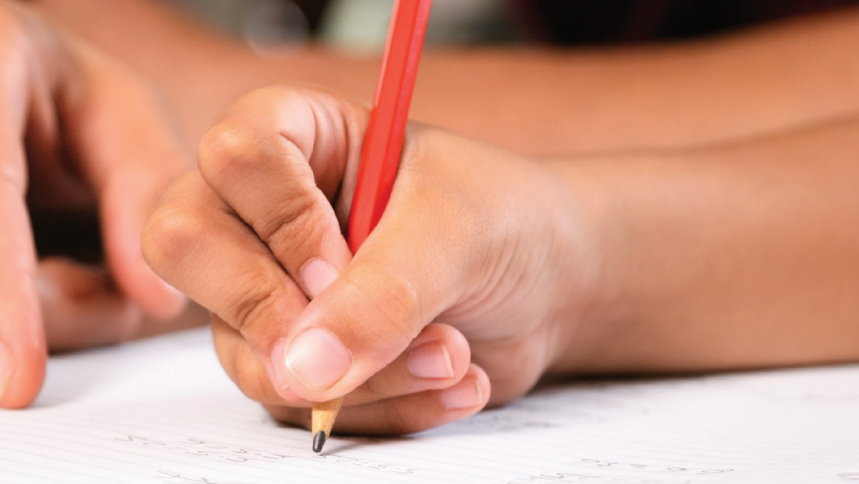
Resource room programs shall be for the purpose of supplementing the regular or special classroom instruction of students with disabilities who are in need of such supplemental programs.
The composition of instructional groups in a resource room program shall be based on the similarity of the individual needs of the students according to levels of academic or educational, achievement and learning characteristics, levels of social development, levels of physical development and the management needs of the students in the classroom.
Learner Characteristics
- Student is generally within low average to average cognitive ability range
Student has specific measurable skill deficits in ELA, Math, Organization or Study Skills as indicated on standardized assessments, results of rating scales, grades, teacher reports, etc. - Student’s deficits in ELA and Math cannot be addressed solely through general education remedial supports and/or interventions
- Student may demonstrate difficulty transferring reading skills to other subject areas (math word problems, spelling, writing) or difficulty retaining new concepts
- Student may demonstrate a need for pre-teaching and re-teaching of academic content, strategy instruction, organization and study skills
- Student may demonstrate a need with their social and/or communication skills
- Student may need assistance with planning short and long term assignments and project
Supports for Students
Minimum of 3 hours/week or in combination with other special education programs such as consultant teacher services. Related services may be provided in combination with resource room based upon individual student needs.
Supports for Staff
The resource room teacher will consult with the student’s general education teacher(s) regarding instructional differentiation, program and/or testing accommodations/modifications relating to the student’s ability and IEP goals and progress. The special education teacher will also seek information regarding the student’s performance in the general education class.
Supports for Parents
The special education teacher and related service provider(s) share classroom information with parents and report on the student’s progress towards IEP goals. The special education teacher is available to assist parents in developing a structure and routine for the student to complete homework and/or communicate with school progress and performance to parents on a regular basis. Communication will include information regarding materials appropriate to the student’s abilities.
Academic Skills Development Program
Bridges (Elementary Program- 12:1)
RISE (Reaching Independence by Supportive Education)(Secondary Program- 15:1)
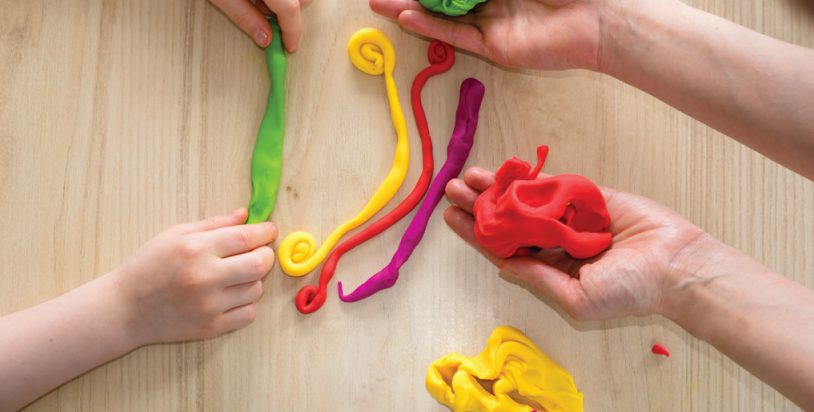
These programs are designed for students with academic delays who struggle to meet grade level expectations even with accommodations and modifications. Students within this program are successful with classroom management strategies and a smaller class of student to teacher ratio.
They receive their core instruction within the special class setting (outside of the general education classroom) and have a highly modified curriculum where specialized instruction is designed to meet the similar needs of a group of students. Students mainstream into classes where appropriate for social and/or academic areas.
Learner Characteristics
- Cognitive, academic, and language deficits at or below the 10th percentile on multiple data points on standardized testing
- Global weaknesses on Standardized Achievement and/or Criterion Referenced Assessments
- Typically receive one or more related services within their day (occupational therapy, physical therapy, speech-language therapy, and/or counseling)
Adaptive skills are typically within the normal limits - Learner characteristics for students in this program are characterized by deficits in cognitive, academic, language, social skills, and/or motor skills.
- Students within this program are successful with classroom management strategies
- Students require a small group setting for academic work
Student takes the NYS assessments - Student demonstrates functional communication skills
Supports for Students
Curriculum delivery consists of small-group, targeted instruction based on the Learning Standards, provided at a modified pace with built-in opportunities for repetition and practice of skills. Instruction is intensive and individualized. Students participate in general education classes where appropriate. Related services are provided as indicated on the student’s IEP.
Supports for Staff
For students’ participation in general education classes, the special education teacher works with the general education teacher(s) to identify the Specially Designed Instruction (differentiated instruction, program/testing accommodations, assistive technology).
Supports for Parents and Guardians
The special education teacher and related service provider(s) communicates classroom information to parents and reports on the student’s progress towards IEP goals. The special education teacher is available to assist parents in developing a structure and routine for the student to complete homework.
Life Skills Program (12:1:4)
This program is designed for students with significant developmental delays who are generally eligible for the New York State Alternate Assessment (NYSAA) and are pursuing a Skills Achievement Commencement Credential (SACC).
Learner characteristics for students in this program are characterized by intellectual disability, significant delays in academic functioning, language skills, gross and/or fine motor skills, social skills and adaptive behavior functioning. Students may also exhibit significant behavior management needs and/or be medically fragile. They receive the majority of their instruction within the special class setting (outside of the general education classroom) and have an alternate curriculum where specialized instruction is designed to meet the similar needs of a group of students.
Learner Characteristics:
- Cognitive ability weaknesses
- Academic skill weaknesses
- Student demonstrates deficits in all adaptive domains (academic, language, social)
- Processing deficits require slower paced modified instruction
Documented need for a high staff to student ratio in a smaller, supported setting. - Student needs a modified curriculum in multiple subject areas
Supports for Students
Special class that provides alternate grade level indicators with emphasis on key concepts and life skills, opportunities to participate in general education classes (usually electives) when appropriate, psychological counseling services and speech and language therapy integrated into the classroom, access to a wide variety of assistive technology, additional related services are delivered in accordance with individual student needs, referrals to Office for People with Developmental Disabilities (OPWDD), referrals to Adult Career and Continuing Education Services – Vocational Rehabilitation (ACCES-VR) (high school students), access to transition support specialist who works with the students and/or classroom team to evaluate and support the student’s post high school transition (high school students), job coaching for community-based work experiences for high school students, when appropriate.
Supports for Staff
Speech therapist will consult/support the special educator on the student’s language needs, strengths and the carryover of speech and language goals, additional related service consultation are available as needed, for students who are able to participate in general education classes, the special education teacher will consult with the general education teacher(s) to identify the modified curriculum and strategies for differentiating instruction.
Supports for Parents
The special education teacher and related service provider(s) communicates classroom information to parents and reports on the student’s progress towards IEP goals and objectives. The special education teacher is available to assist parents in developing a structure and routine for the student to complete homework and/or communicate school progress and performance to parents on a regular basis. Parent training will be provided throughout the year to assist parents in understanding their child’s disability and strategies for supporting him/her at home and in school.
Communications Program (8:1:3)
This is an intensive multi-age program for students whose learning characteristics are consistent with a diagnosis of an Autism Spectrum Disorder and/or other significant social pragmatic communication disorder that impacts their ability to be successful within the general education setting. Communication skills, social skills, and/or adaptive skills are delayed. Students receive academic instruction within a highly structured setting, which includes visual supports, assistive technology, and augmentative communication as appropriate.
Students may be New York State Alternate Assessment (NYSAA) eligible. These students receive instruction within the self-contained setting (outside of the general education classroom) where specialized instruction is designed to meet the similar needs of a group of students, but have access to the general education setting as appropriate for their individual needs and abilities.
Learner Characteristics:
- Has a diagnosis, or is suspected of having a diagnosis, of Autism Spectrum Disorder and/or other Social Pragmatic Communication Disorder
- Cognitive skills vary, typically ranging from standard scores of 70 to above 100.
- Academic skills vary depending on student strengths and weaknesses.
The student typically manifests a developmental disability significantly affecting verbal and nonverbal communication and social interaction - Students may demonstrate anxiety or coping skill deficits related to social situations, transitions, and environmental changes. Students may have sensory and/or motor needs.
- The student may need Augmentative and/or Alternate forms of Communication, such as PECS or other high/low tech options.
- The student may exhibit behaviors related to the diagnosis (e.g., difficulty with changes in routine, difficulty participating in non-preferred activities) but these behaviors are able to be managed within the classroom supports and generally are not unsafe to self or others
Supports for Students
Related services are delivered in accordance with individual student needs and consideration will be given to the integration of these services in the classroom. Social/pragmatic skills group facilitated by a speech therapist, special education teacher, and/or social worker. Students have access to a wide variety of assistive technology.
Supports for Staff
An interdisciplinary approach which promotes collaboration between all service providers as well as consultation and training in Autism Spectrum Disorders. The social worker and/or behavioral specialist work with the teacher and team members to develop the classroom management plan and/or individual student behavior plans, as needed, to assist students’ abilities to transition and to navigate the school environment. These plans will be based on a positive behavioral approach. All staff (teachers, paraprofessionals, providers) will be supported in utilizing researched-based instructional methods and data collection techniques to inform classroom practices and structure. Additional related service consultations are available including assistive technology.
Supports for Parents
The special education teacher and related service provider(s) communicates classroom information to parents and reports on the student’s progress towards IEP goals and objectives. The special education teacher is available to assist parents in developing a structure and routine for the student to complete homework and/or communicate school progress and performance to parents on a regular basis. Consultation with a behavior specialist regarding their child’s specific behavioral needs. Parent training will be provided throughout the year to assist parents in understanding their child’s disability and strategies for supporting him/her at home and in school.
Intensive Management Needs (IMN) Program (8:1:3)
This is a self-contained program with the goal of working towards helping the student develop skills to be able to be supported in a less restrictive program option over time.
The IMN Program provides a highly intensive level of support to elementary school students with severe behavioral needs. This program is not currently offered in secondary school. The program also targets remediation of significant challenging behaviors and provides alternate instructional methods in a multi-aged classroom that best support students’ learning and emotional needs.
Learner Characteristics
- Cognitive skills (IQ) above the 15th percentile (low average to average)
- Demonstrates significant emotional, behavioral and/or management needs that impede learning and success in least restrictive environment
- Demonstrates significant difficulty with self-regulation, self-control, and low frustration tolerance.
- Requires an FBA and BIP upon entrance
- Requires direct social emotional support
- Requires direct instruction in Social Skills and Self-Regulation
- Sensory-motor needs ranging from visual supports to pull-out sensory breaks in the motor room
- Requires a highly structured learning setting with increased adult support
- Requires a highly structured classroom management system
- May require technology support to optimize learning
- May display long standing patterns of aggressive and acting out behaviors and have not responded to intensive interventions
- May require sensory and/or motor support (OT) to access school setting
Supports for Students
Curriculum delivery consists of small-group, targeted instruction based on the Learning Standards provided at a modified pace with built-in opportunities for repetition and practice of skills. Instruction is intensive and individualized.
Students may be mainstreamed for core academic instruction based upon individual strengths. Students should be mainstreamed for all electives/specials. Ongoing assessment is conducted to determine readiness for mainstreaming in general education. Related services are provided as indicated on the student’s IEP. Students benefit from frequent presets and changes in activities.
Supports for Staff
The special education team will collaborate to assist in the development of the classroom management plan, Functional Behavior Assessment (FBA) (when needed), and development of a formal or informal behavior plan to assist teachers in improving the student’s ability to benefit from instruction and navigate the school environment. These plans will be based on a positive behavioral approach. Classroom staff will be trained on behavior management strategies. The social worker will assist the teacher in implementing positive behavioral strategies in the classroom. Behavior Specialist consultation
Supports for Parents and Guardians
The special education teacher and related service provider(s) communicates classroom information to parents and reports on the student’s progress towards IEP goals. The special education teacher is available to assist parents in developing a structure and routine for the student to complete homework and/or communicate school progress and performance to parents on a regular basis.

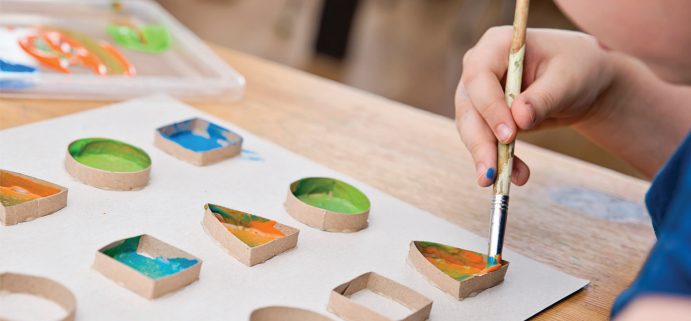
You must be logged in to post a comment.